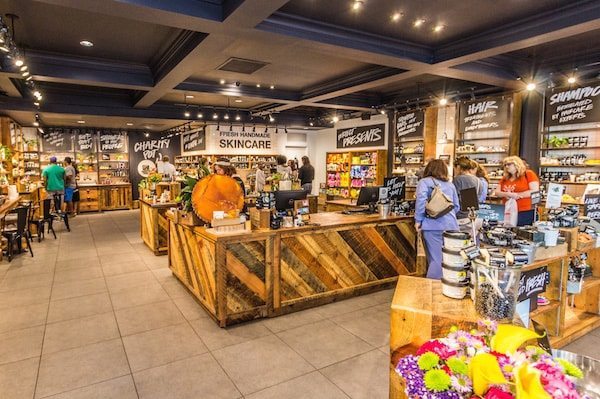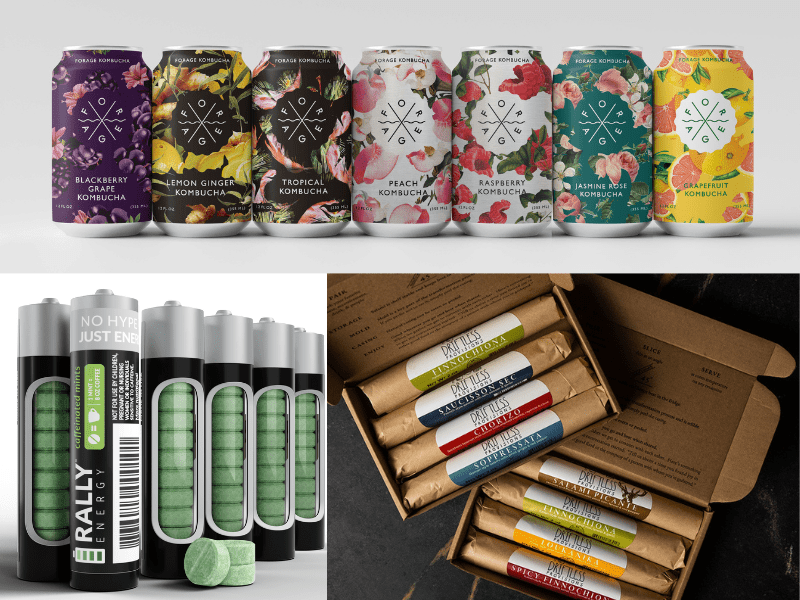Naturally, most food and farm entrepreneurs want to grow their businesses. And generally speaking, growth is a great goal. Whether they are trying to grow distribution, acreage, manufacturing, product selection, or sales, any effort to improve upon a business metric is often a smart strategy.
But it isn’t always. Depending on the business model, scale, and stage, getting bigger or broader may not be the best idea, at least at the present time.
In fact, growth can result in more downsides than upsides, especially for early-stage businesses not ready to grow at that point in their lifecycle. They could find out the hard way that growth has complicated operations, drained available funds, created sourcing issues, compromised product quality, or overburdened the entrepreneur and their team.
Now, in some cases, these issues might be worth weathering short-term while the entrepreneur finds fixes for the long haul. For instance, if there is a surge in revenue, then they may be able to invest that money back into the business to smooth out the growing pains. They could hire more workers, perhaps, or buy new equipment to support the additional business.
However, more commonly than many entrepreneurs realize, growth does not produce sizeable, manageable, or easily reinvest-ible revenue gains—and it definitely doesn’t guarantee fatter profit margins. Because even if revenue skyrockets, the additional costs of labor, time, inputs, or straight cash required to generate that revenue might cancel out most or even all of the profit. It all comes back to that tried-and-true business equation: revenue – cost = profit.
So does this mean some food and farm entrepreneurs should not try to grow their businesses? Perhaps—for now, anyway. Again, this is very situation dependent, but for certain farms, food brands, food service operators, and other entities in this space, getting bigger or broader may not be the wisest move. Instead, they should focus on streamlining their operations, boosting efficiencies, and coaxing more profitability out of the land, production space, workforce, or other assets that they already have.
Cow Creek Organic Farm’s Will Glazik realized this a few years back. Like most of his neighboring farmers, he’d wanted to acquire more acreage and grow more crops. Will just assumed that his 14-crop rotation, which included high-dollar specialty organic crops, was making his enterprise more profitable. Hiring an accountant taught him that it wasn’t. In reality, he’d been running himself ragged for no significant financial gains.
So Will pivoted. His new goal is to maximize the profitability of his enterprise. To do that, he is sticking with 160 acres, has already narrowed his crop rotation down to six, and is continuously working to become more efficient. His target net profit is $1,000 per acre, which will eventually include his family living expenses. As Will says in Edible-Alpha® podcast #119, “I just want to be more profitable and then kick my feet up; I want to farm less and make more money doing it.”
Will’s situation isn’t uncommon. Lots of food and farm entrepreneurs could benefit from this strategy. While growth is indeed an excellent and apt goal for many businesses, it’s worth digging into your numbers and assessing profitability to make sure it’s the right move.
Fifth-generation farmer Will Glazik thought he knew everything about growing organic grains. But launching his own enterprise within his family’s Cow Creek Organic Farm showed him he had a lot to learn—and still does. Now Will is focused on working smarter, not harder, enhancing on-farm efficiencies to bolster profitability per acre. This is smart, since he also co-owns Silver Tree Beer & Spirits with his brothers. Will shares his many learnings in the podcast, so definitely tune in!
And now, our roundup of the best food and beverage finance news, events and resources from around the web…

Business Model Insights
- Fresh food as medicine for the heartburn of high prices (Deloitte Insights)
- With inflation top of mind, it’s difficult for consumers to look beyond price—but fresh food producers and retailers may find an advantage in connecting consumers to healthy choices.
- What this economy means for your H2 business plans (New Hope Network)
- A New Menu of Food and Beverage Opportunities (IRI Insights)

Raising Capital
- Dairy operations can gain up to $100,000 via DBIA grants (Dairy Processing)
- Dairy Business Builder grants help small and midsized operations diversify on-farm activities, create value-added products, enhance dairy byproducts, and create or enhance export programs.
- Biome Capital Partners Reimagines Food Systems Investment (Regenerative Food Systems Investment Forum News)
- Raising Investor Capital? Take These 15 Critical Financial Steps First (Forbes)

CPG/National Brands
- ‘There hasn’t been a better time for small brands to help transform the CPG industry’ (FoodNavigator-USA)
- New Nielsen survey shows that as consumers navigate rising inflation and ongoing out-of-stocks—while increasingly considering the environmental and social impacts of their purchases—they are more willing to push aside old loyalties and try savvy small and midsized brands.
- FDA Proposes Updated Definition of ‘Healthy’ on Food Packages (Food Manufacturing)
- 15 brands on a mission to improve soil health (New Hope Network)

Market Trends
- Expo East 2022 Keynote: Natural and organic CPG market remains resilient (New Hope Network)
- Consumers who moved to natural and organic foods during the pandemic continue to support this industry—and are expected to stay.
- Meat prices lag inflation as volumes decline (Grocery Dive)
- Costco sees uptick in store traffic and membership renewals as shoppers realize value of mass & club channel (FoodNavigator-USA)

Farming and AgTech
- New Survey Finds Young Farmers Are Motivated by Environmental Conservation and Social Justice (Food Tank)
- Latest National Young Farmers Coalition survey of 10,000-plus farmers finds that those under 40 are working to conserve land and boost resilience to climate change, yet they struggle with land access, health care costs, and student loan debt.
- What Farmers Really Want From the 2023 Farm Bill (Modern Farmer)
- Federal investment in climate-smart agriculture is coming to Wisconsin farms (Wisconsin Public Radio)

Deals/M&A
- Tractor Zoom scoops up $5m to bring better data, transparency to farm equipment buying (AgFunder News)
- Cloud-based online marketplace simplifies equipment procurement for farmers by leveraging real-time price and valuation data from vendors and auctioneers nationwide.
- Wicked Kitchen raises $20 million (Food Business News)
- Aura Bora closes Series A funding round to fuel national expansion into the mainstream sparkling water set (FoodNavigator-USA)

Industry Events
Virtual events:
- The Land Connection: Grow Your Farm Business: Launch Your Cottage Food Or Value-Added Enterprise: 10/6–11/17
- FFI October Quarterly Trends Talk: 10/10
- FFI Level 1 Consultant Training: 11/9
- Edible-Alpha® Immersion Training: Farm Financial Management Bootcamp: 11/15
- Wisconsin Women’s Business Initiative Corporation Annual Convention Training Session: Manufacturing Resiliency: 12/3
- FFI Level 2 Consultant Training: 12/7
In-person events:
- World Dairy Expo: 10/2–10/7 in Madison, WI
- Regenerative Food Systems Investment Forum: 10/12–10/13
- Rodale Institute Regenerative Healthcare Conference: 10/16–10/19 in Kutztown, PA
- Food Safety Consortium Conference and Expo: 10/19–10/21 in Parsippany, NJ
- Emerging Brands Summit: 10/23 in Chicago, IL
- PACK EXPO International: 10/23–10/26 in Chicago, IL
- Rodale Institute Southeast Organic Center Field Day: 10/26 in Chattahoochee Hills, GA
- Global Produce and Floral Show: 10/27–10/29 in Orlando, FL
- Accessing New Markets Through Distribution Field Day: 10/28 in Urbana, IL
- New Farmer U: 10/28–10/29 in Urbana, IL
- Poultry Tech Summit: 10/30–11/1 in Atlanta, GA
- SupplySide West/Food ingredients North America: 10/31–11/4 in Las Vegas, NV
- Nutrition Capital Network Ingredient Tech Investor Meeting: 11/1 in Las Vegas, NV
- American Food Manufacturing Summit: 11/8–11/9 in Chicago, IL
- Kosherfest: 11/8–11/9 in Secaucus, NJ
- Private Label Manufacturers Association Show: 11/13–11/5 in Chicago, IL
- Wisconsin Women’s Business Initiative Corporation Annual Convention: 11/15 in Milwaukee, Wisconsin


